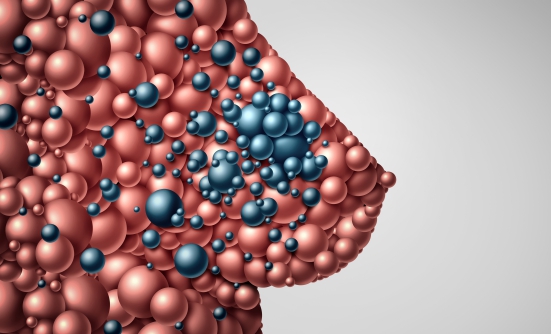New results from a phase 2 clinical trial of combination immunotherapy for patients with localized muscle-invasive bladder cancer were presented at the 2021 ASCO Annual Meeting. The study looked at the combination of 2 immunotherapies—the PD-L1 inhibitor Imfinzi (durvalumab) and the investigative CTLA-4 inhibitor tremelimumab—plus radiation as an approach that may help to preserve the bladder.

“This therapeutic regimen showed high efficacy in terms of response and elicited bladder preservation in a large proportion of patients,” said Xavier Garcia del Muro, MD, Medical Oncologist in Barcelona, Spain. “Nevertheless, longer follow-up is still needed, focusing especially on long-term bladder preservation and survival.”
Bladder-preserving with combination therapies, which usually include surgery, chemotherapy, and radiotherapy, represent an alternative to radical cystectomy (removal of the bladder) for some patients with muscle-invasive bladder cancer, Dr. Garcia del Muro explained.
Immunotherapy with PD-1 or PD-L1 checkpoint inhibitors has also shown significant benefit in the treatment of patients with advanced urothelial cancer, the most common type of bladder cancer.
According to Dr. Garcia del Muro, recent studies have shown that immunotherapy is also beneficial before surgery in patients with localized muscle-invasive bladder cancer. The combination of radiation plus 2 immunotherapies—a CTLA-4 inhibitor and a PD-L1 inhibitor—has also been shown to enhance immune response in early studies.
High Rates of Complete Response and Bladder Preservation
This new phase 2 clinical trial included 32 patients at 6 cancer centers in Spain. All patients had localized muscle-invasive bladder cancer that had not spread to other organs (meaning not metastatic) and had no lymph node involvement.
All patients received initial surgical removal of the tumor, followed by immunotherapy with durvalumab plus tremelimumab every 4 weeks, for a total of 3 cycles. Radiation therapy was started 2 weeks later.
At an average follow-up of 12.7 months, all 32 patients received at least 2 cycles of immunotherapy, and 23 patients received the 2 immunotherapies plus radiation therapy.
The average age of patients in the study was 71 years, and 25 patients were males. The disease was confined to the bladder in 28 patients, and 4 patients had cancer outside of the urinary bladder. Approximately one-third (33%) of the patients were considered unfit for cisplatin chemotherapy, according to Dr. Garcia del Muro.
Complete response (no sign of cancer) to this regimen of 2 immunotherapies plus radiation therapy was defined as the absence of muscle-invasive bladder cancer at the time of biopsy at the end of the treatment regimen.
In all, 81% of patients had a complete response to therapy. Only 2 patients had no response to treatment, and 4 patients were not evaluated for response, for different reasons.
The overall survival rate was 87%, and the estimated rate of 12-month disease-free survival was 76%.
A large proportion of patients in the study were able to preserve their bladders as a result of this combination regimen, said Dr. Garcia del Muro. He added that so far, only 2 patients had surgery to remove part of their bladder. The 2 patients whose tumor did not respond to the treatment regimen ended up having metastatic bladder cancer.
Side Effects
The 12-month rate of disease relapse (coming back) was estimated to be 14%, meaning that after 12 months of this treatment regimen, the cancer came back in 14% of the patients.
“In general, the treatment tolerance was acceptable,” said Dr. Garcia del Muro. He said that a total of 31 patients had side effects related to the combination treatment, with diarrhea and urinary disorders being the most common.
Severe (grade 3 or 4) treatment-related side effects were reported in nearly one-third (33%) of the patients; diarrhea, kidney injury, and hepatitis were the most common severe side effects. In addition, 1 patient died from treatment-related peritonitis. A total of 7 patients discontinued the combination immunotherapy because of treatment-related side effects.
“Further research on this approach as an alternative to radical cystectomy in selected patients with localized muscle-invasive bladder cancer is warranted,” Dr. Garcia del Muro concluded.
Key Points
- For some patients with muscle-invasive bladder cancer, using combination therapies can be an alternative to radical cystectomy (removal of the bladder)
- Urothelial cancer is the most common type of bladder cancer
- Immunotherapy with PD-1 or PD-L1 checkpoint inhibitors has shown significant benefit in the treatment of patients with advanced urothelial cancer
- Recent studies have shown that immunotherapy is also beneficial before surgery in patients with localized muscle-invasive bladder cancer
- In a new study, the overall survival rate was 87%, and the estimated rate of 12-month disease-free survival was 76%
- The most common severe treatment-related side effects were diarrhea, kidney injury, and hepatitis, and were reported in nearly one-third (33%) of the patients















